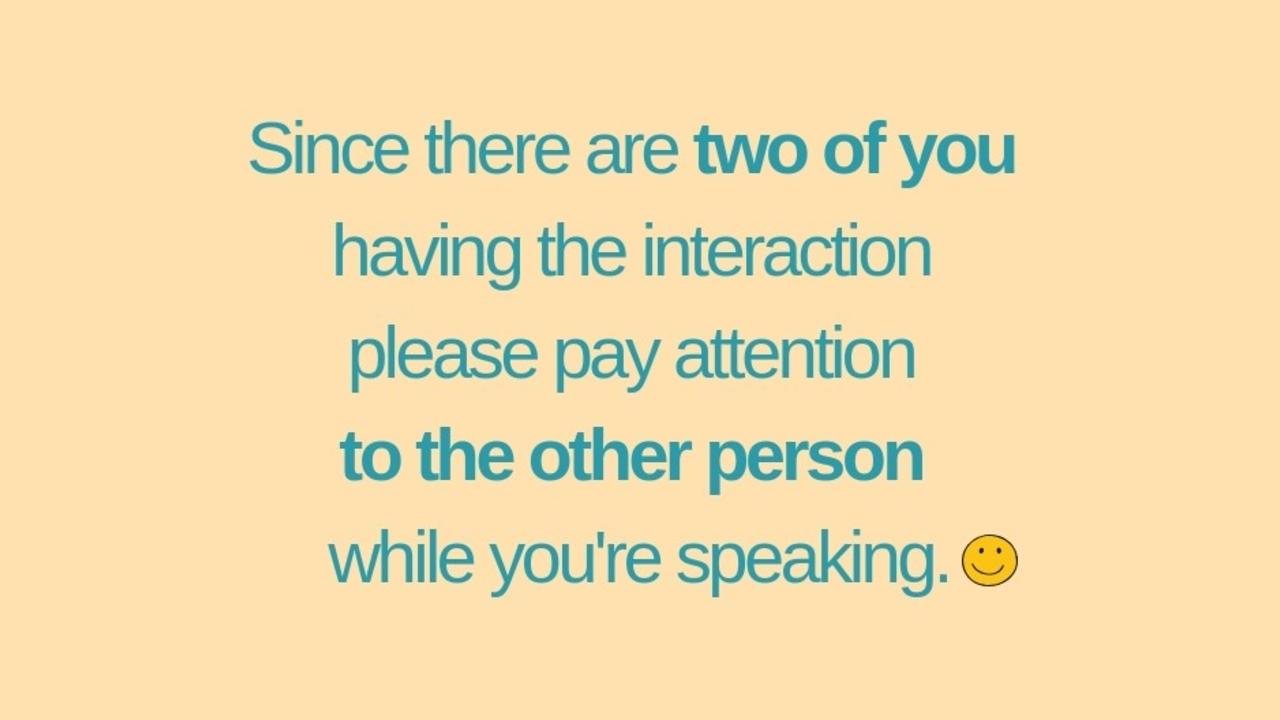Don't be so focused on what you're saying that you ignore me

When you're concentrating on making your point, defending yourself, winning an interaction, or being right, you're probably not noticing me (the other person). I might be getting upset, my feelings could be hurt, or maybe I'm bored or just tuned out.
Here’s a tip: Paying attention to me and my reactions are as important, if not more critical than whatever you are saying. It may not feel that way to you, but that's how relationships work best.
So while you are speaking to me, it is helpful also to observe what's going on, and notice me, the other person. Then you'll be able to see if I'm listening to you and/or reacting to something you've said either positively or negatively.
And when you notice that something is happening to me, such as an eye roll, seeming distracted, upset, etc. it's a good idea to stop whatever you are saying, and ask me about your observation. You can say: "What's going on?" but DO NOT just keep talking, especially if my reaction is undeniably obvious to both of us.
When you keep talking, you continue to focus on yourself instead of me, and that makes me feel unimportant, and maybe even invisible. I'm led to believe that whatever you're saying at that moment, must be more important than I am. It is not a good feeling.
And if I tell you that your comment hurt my feelings or upset me, then please take responsibility and apologize, because (I'm hoping) that was not your intention. Don't get defensive or become angry towards me, just let me know that you didn't intend to get me upset. That's all I need you to do.
Therefore, if while your speaking, you notice me and my reactions, it makes me feel more connected to you, and that's a good thing!
Caveat: You don't have to comment on every little nuance, such a smile or a sigh, but if my reaction is a strong one, then take a moment to check-in.
To recap: Please pay attention to me when we're having a conversation and stop whatever you're saying when you see that I have a reaction. Ask me about it, then own your part before continuing with whatever you were saying.
This strategy is one way to defuse a potential argument, and it can immediately change the trajectory of a conversation. It also applies to interactions both at home and at work.
In case you are wondering... this helpful suggestion is Step #3 of the Relationship Protocol model!
This article was also published on ThriveGlobal.com
